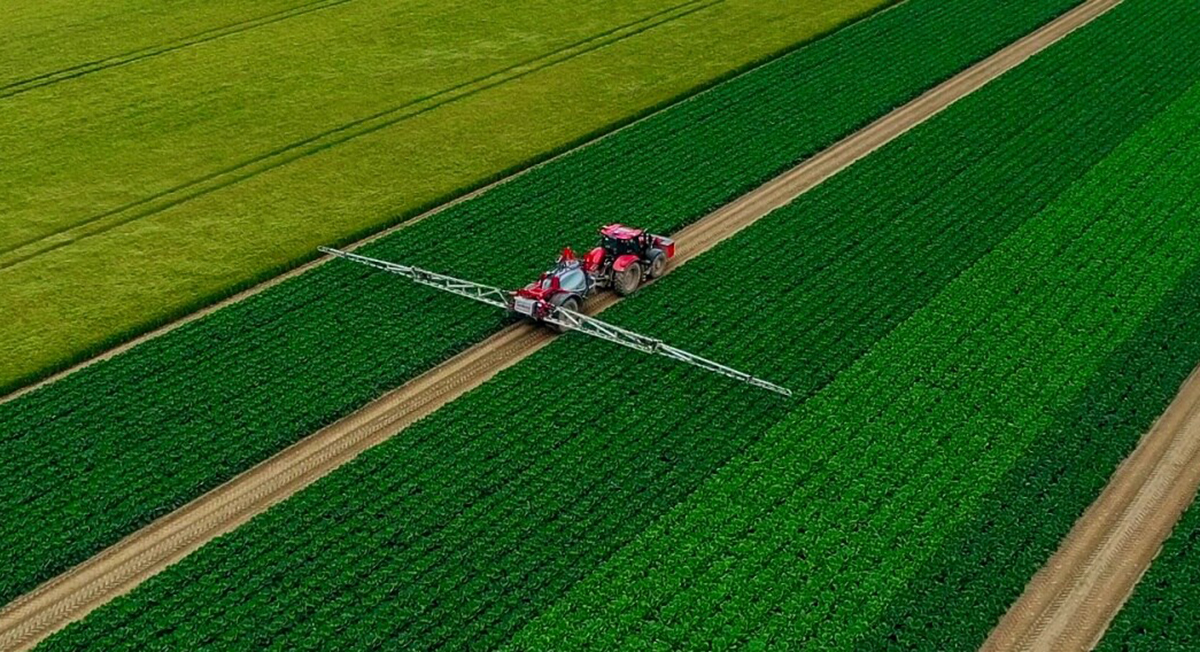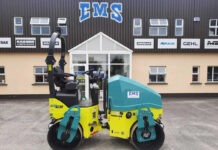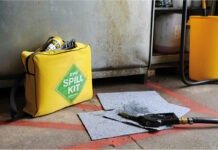The adoption of technology in agriculture has the potential to improve farming practices, support sustainability and — as one Irish farm recently found out — dramatically increase yield.
Finnegan’s Farm is a family-run vegetable and potato farm in Co. Meath, Ireland. In 2019, it became the first farm in Ireland to adopt a specific type of precision farming technology, Topcon Agriculture’s CropSpec, which perfectly complemented the other Topcon technology they were already using including auto-steer, manual guidance control and yield monitoring. These solutions combined were part of a plan to deliver larger quantities of high-quality crops in a sustainable way.
By using crop sensing technology, Finnegan’s was able to alter its farming processes in response to real-time data, thus ensuring the health of the crop was at a premium, enabling a high yield, without an over reliance on chemical fertilisers and pesticides.
“We decided to look for a new way of working because we, like most farmers, could see that we’d be facing a lot of challenges going forward, environmentally and operationally,” said John Smith, general manager at Finnegan’s Farm.He sought a solution that would help Finnegan’s with an environmentally sustainable farming method which also delivered reliable results in crop yield, which is why Topcon’s CropSpec was the ideal choice.
CropSpec is a canopy stress sensor which is easily mounted to the tractor roof, and can work with the existing technology already in use on the farm, providing a highly accurate large sensor footprint. The sensors measure plant reflectance to determine chlorophyll content, which correlates to nitrogen concentration in the leaf. This non-destructive, non-contact measurement method provides accurate, stable readings with repeatable values, and is compatible with all crops due to the non-invasive method of measurement.
Its insight helps farmers understand what’s going on below the surface, explained Craig England, technical specialist at Topcon who helped John and the team set up the system at Finnegan’s farm and provides ongoing support. “The big benefit of using CropSpec is the advantage of scouting the field the year before the actual potatoes go in,” he said. “Then, once the potatoes are going in, we can go along with a prescription map for the fertiliser output. The goal is to reduce the amount of fertiliser and chemicals that need to be applied to the crop.”
The system is capable of picking up on problematic areas before they become apparent to the naked eye. Its sensors manage and monitor overall crop and plant health, giving farmers a real-time view of how their crop is growing so they can make any necessary adjustments to their farming — such as reducing overwatering in waterlogged areas, or increasing fertiliser to poor yield areas.
“When the farmer is out in the field doing their spraying or spreading, CropSpec is monitoring the crop and providing a clear picture of the weaker and stronger areas of the field,” explained Craig. That information is then available to access through the Topcon Agriculture Platform, a data management software programme which enables full oversight of all data collected. From there, calculations can be performed to find out what specific parts of the potato fields need in terms of water, nutrition and so on. “The agronomist then comes back with a prescription map for the desiccation of the potatoes at the final spraying just before harvest.”
When the team at Finnegan’s Farm first brought the technology onto site, it found a considerable underuse of viable arable land. Gavin Weldon, owner of Wel-Tech — which distributes Topcon in Ireland — said: “When we did our first trials and digs at Finnegan’s Farm, we were very impressed with what we found. Anywhere CropSpec flagged up as being a poor area, we were able to go out, do a dig or do a visual check and see what was going on. We found the crop yield could have been an extra two to three tons per hectare, so we think over the next year or two we will see a big payback thanks to the system.”
The use of technology in farming has the potential to democratise data for farmers and help them to enhance their unique way of working, making their processes more efficient and effective, without a reliance on chemical pesticides and fertilisers. With growing consumer and legislative demand for less chemical interference in farming, technology has the potential to the be answer: improving yield and helping to future-proof farming businesses for generations to come. By providing agriculture businesses with the latest technology, their tried and tested techniques can be enhanced through the use of precise and accurate data, unlocking a wealth of income potential.
John Smith, general manager at Finnegan’s Farm, summarised the reasoning behind the investment in CropSpec. “We hope that CropSpec will allow us to have a variable rate of prescription on our second desiccation, which will in turn reduce the number of inputs going into the crop. This will produce healthier and more sustainable crop, whilst giving the quality we expect at Finnegan’s Farm.”
CropSpec is part of a whole suite of agriculture solutions, to find out more information about Topcon Agriculture, visit www.topconpositioning.com/agriculture








